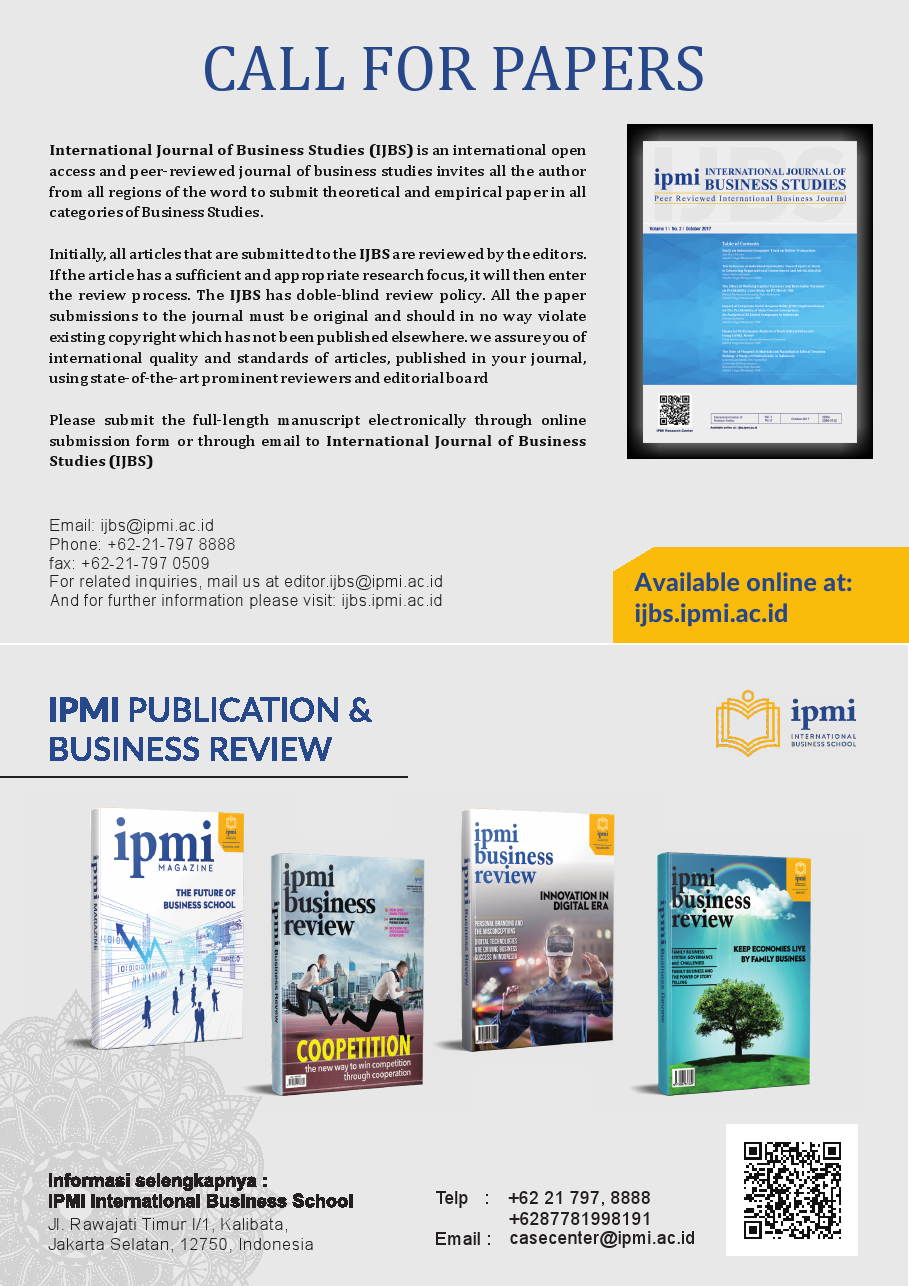The Barriers and Challenges of Corporate Governance in Jordanian Companies: An Evaluation of the Reality of Corporate Governance in Jordan
DOI:
https://doi.org/10.32924/ijbs.v4i2.136Keywords:
Corporate Governance, Public Shareholding Companies, Barriers, ChallengesAbstract
This paper aimed to identify and analyze the obstacles and challenges facing the implementation of corporate governance in Jordanian companies by using collecting data from books, periodicals, previous research and interviews to access answers to questions of research. The qualitative research method and interviews have been conducted to obtain different answers to the research questions. The paper compared the data collected from articles and interviews in order to examine the extent of compliance of Jordanian legislation and companies with the principles of corporate governance. The paper concluded that there is a unanimous agreement that corporate governance is a critical factor in corporate success. However, there are restrictions and barriers that hinder the progress of good practices of corporate governance. Furthermore, there is no general implementation of the concept in its entirety, this may be because the rules of corporate governance are indicative and non-binding as they aim to raise the level of management in companies and protect the rights of shareholders. Therefore, it is necessary to recommend here to adopt this issue in future research by studying how to overcome these barriers, which may positively affect companies.
Downloads
Submitted
Accepted
Published
How to Cite
Issue
Section
License

International Journal of Business Studies by Sekolah Tinggi Manajemen IPMI is licensed under a Creative Commons Attribution-ShareAlike 4.0 International License.
Authors who publish with this journal agree to the following terms:
1. Copyright Transfer Agreement Form can be downloaded HERE.
2. Authors retain copyright and grant the journal right of first publication with the work simultaneously licensed under a CC BY-SA Creative Commons Attribution-ShareAlike 4.0 International License that allows others to share the work with an acknowledgement of the work's authorship and initial publication in this journal.
3. Authors are able to enter into separate, additional contractual arrangements for the non-exclusive distribution of the journal's published version of the work (e.g., post it to an institutional repository or publish it in a book), with an acknowledgement of its initial publication in this journal.
4. Authors are permitted and encouraged to post their work online (e.g., in institutional repositories or on their website) prior to and during the submission process, as it can lead to productive exchanges, as well as earlier and greater citation of published work.















